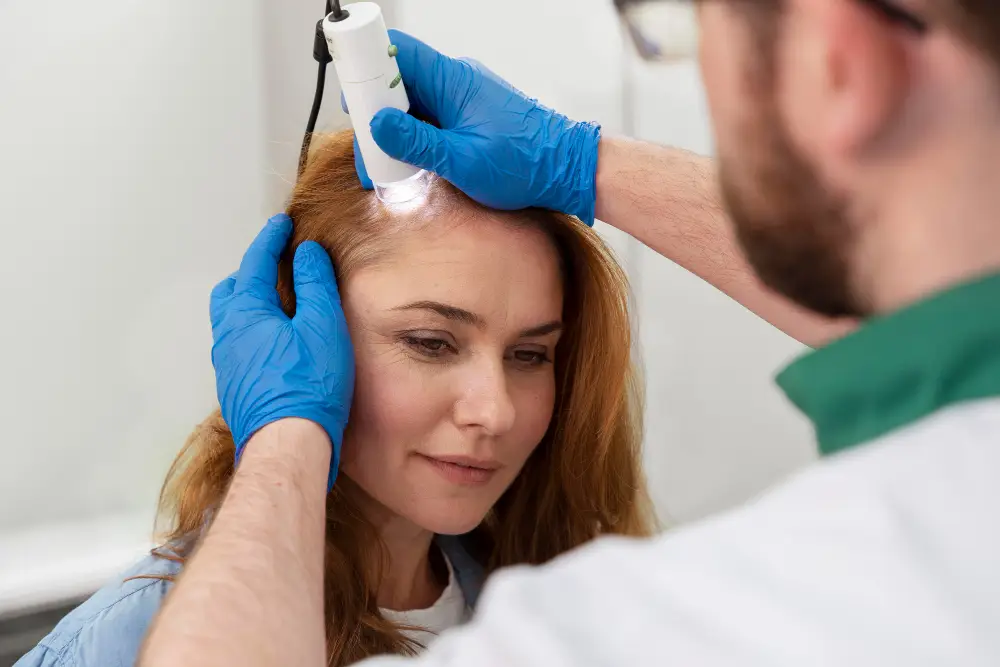
Key Takeaways
- Brain stem cell treatment is a dynamic field focused on enhancing neuroregeneration and supporting cognitive restoration, particularly for conditions like traumatic brain injury.
- Navigating information about these advanced therapies requires understanding their scientific basis, ethical considerations, and the robust regulatory framework in Colombia.
- The Regencord team in Pereira, Colombia, offers a transparent, patient-centric approach, providing essential education and comprehensive support throughout the patient journey.
- Our “Regencord Clarity Compass” is designed to guide individuals through a clear process, ensuring informed decision-making and setting realistic expectations within an ethical framework.
- Ethical considerations and adherence to established guidelines are paramount in any discussion or pursuit of advanced regenerative pathways.
Brain Stem Cell Treatment: Navigating Neuroregeneration and Cognitive Restoration in Colombia
Table of Contents
- Introduction: Hope and Clarity in Advanced Neurological Care
- The Stakes: Critical Implications of Neurological Conditions and the Search for Regeneration
- Understanding Brain Stem Cell Treatment: The Foundation of Neuroregeneration
- The Conventional Approach to Neurological Conditions in Colombia
- The Pereira, Colombia Advantage: A Focus on a Supportive Environment for Advanced Care
- Navigating Your Options: The Regencord Clarity Compass
- Our Regenerative Philosophy & Approach at Regencord
- Overcoming Common Hesitations: Why Seeking Clarity is a Strategic Advantage
- Glossary of Key Terms
- Frequently Asked Questions (FAQ)
- Take the Next Step: Your Confidential Case Review
Introduction: Hope and Clarity in Advanced Neurological Care
For individuals grappling with the profound impact of neurological conditions, particularly those seeking pathways for neuroregeneration and cognitive restoration after events like traumatic brain injury, the journey can be fraught with uncertainty. The term “brain stem cell treatment” often evokes both immense hope and a myriad of questions. In a rapidly evolving field, distinguishing between scientifically grounded possibilities and unproven claims becomes paramount.
At Regencord in Pereira, Colombia, we understand these complexities. Our mission, as your patient advocate, is to provide a beacon of clarity and ethical guidance. This comprehensive guide aims to educate, empower, and support you in understanding the landscape of advanced neurological care, with a specific focus on the potential and practicalities within Colombia.
We believe that informed decisions are the most powerful. This resource is designed to equip you with verifiable insights, address common anxieties, and outline a transparent pathway to exploring potential regenerative options. Our commitment is to present the contextual advantages of seeking care in Pereira, Colombia, while maintaining strict adherence to ethical standards and transparent communication.
The Stakes: Critical Implications of Neurological Conditions and the Search for Regeneration
Neurological conditions, from traumatic brain injury (TBI) to neurodegenerative challenges, represent some of the most complex and life-altering health issues. The World Health Organization (WHO) highlights the significant global burden of neurological disorders, emphasizing their impact on quality of life and healthcare systems. For those affected, the desire for solutions that go beyond managing symptoms to actively promote healing and restore function, such as neuroregeneration, is deeply personal and urgent.
Traditional medical approaches often focus on stabilizing the condition and managing symptoms, which are crucial. However, the concept of harnessing the body’s inherent capacity for repair—a principle at the heart of regenerative science—offers a compelling direction for future pathways. This is where the exploration of areas like neural stem cells and their potential role in cognitive restoration gains significant attention.
The U.S. National Institutes of Health (NIH) consistently invests in research exploring novel approaches to neurological repair, including various forms of stem cell applications. While the science continues to evolve, the profound implications for individuals seeking to regain function and improve their quality of life drive ongoing efforts in this field. Understanding these stakes underscores the importance of a well-informed and ethically guided approach to advanced therapies.
Understanding Brain Stem Cell Treatment: The Foundation of Neuroregeneration

When we discuss brain stem cell treatment, it’s essential to approach the topic with a clear understanding of its scientific basis and current stage of development. This is not about providing definitive answers for every condition, but rather about illuminating the potential pathways and the ongoing research driving this field.
What are Neural Stem Cells?
At their core, neural stem cells are remarkable cells found in the nervous system that possess two key properties: self-renewal (the ability to divide and make more stem cells) and multipotency (the ability to differentiate into various specialized cell types found in the brain and spinal cord, such as neurons, astrocytes, and oligodendrocytes). This intrinsic capacity for renewal and differentiation forms the theoretical bedrock for their exploration in neuroregeneration.
In the context of therapies, different sources of stem cells might be considered, including those derived from adult tissues, induced pluripotent stem cells (iPSCs), or perinatal tissues. The specific types and their applications are subjects of intensive research, with ongoing clinical trials listed on platforms like ClinicalTrials.gov investigating their safety and efficacy for various neurological conditions.
Potential Mechanisms for Neuroregeneration
The exploration of stem cells for neurological conditions is not simply about replacing damaged cells. Research suggests several potential mechanisms through which these cells might contribute to neuroregeneration and cognitive restoration:
- Neuroprotection: Stem cells may release factors that protect existing neurons from further damage.
- Immunomodulation: They can modulate the inflammatory response in the brain, which often contributes to secondary damage after injury or disease.
- Trophic Support: Stem cells can secrete growth factors that support the survival and function of native brain cells.
- Angiogenesis: They might promote the formation of new blood vessels, improving blood supply to damaged areas.
- Differentiation: In certain contexts, they may differentiate into new neural cells, directly replacing those lost due to injury or disease, though this is a complex and highly researched area.
These mechanisms collectively highlight the multifaceted approach of regenerative science, aiming to create a more supportive environment for the brain’s natural repair processes. It’s important to note that the extent to which these mechanisms translate into measurable clinical improvement in humans is still a focus of rigorous scientific investigation.
The Conventional Approach to Neurological Conditions in Colombia
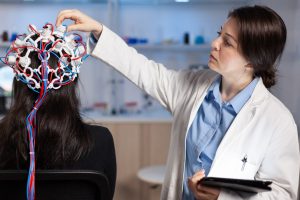
Understanding advanced regenerative approaches requires first acknowledging the established framework of neurological care. In Colombia, like many nations, the conventional management of neurological conditions, including traumatic brain injury and neurodegenerative disorders, adheres to recognized medical standards and protocols.
Colombia’s Healthcare Landscape for Neurological Conditions
Colombia boasts a robust and well-developed healthcare system. The Colombian Ministry of Health and Social Protection (Ministerio de Salud y Protección Social) sets national health policies and guidelines, ensuring a foundational level of care across the country. Neurological services are provided through a network of hospitals, clinics, and specialized centers, offering diagnostics, pharmacological treatments, neurosurgery, and rehabilitation therapies.
For conditions like traumatic brain injury, initial management focuses on stabilizing the patient, preventing secondary injury, and providing acute care. This is often followed by extensive physical, occupational, and speech therapy aimed at maximizing recovery and cognitive restoration. Access to these services is generally facilitated through the national health system, which strives to provide comprehensive care for its citizens.
Integrating Advanced Therapies within the Colombian System
The regulatory environment in Colombia, governed by institutions like INVIMA (National Institute for Food and Drug Surveillance), ensures that advanced therapies, including those involving stem cells, are reviewed and, where appropriate, regulated to safeguard patient safety and promote ethical practice. This oversight is crucial for ensuring that innovative treatments are considered within a framework that prioritizes evidence and patient well-being.
As research in neuroregeneration progresses, the integration of advanced pathways into existing healthcare structures is a continuous process. Regencord understands this dynamic landscape and aims to provide transparent information on how scientifically grounded regenerative options can be explored within Colombia’s regulated and supportive medical environment, complementing conventional care strategies.
The Pereira, Colombia Advantage: A Focus on a Supportive Environment for Advanced Care
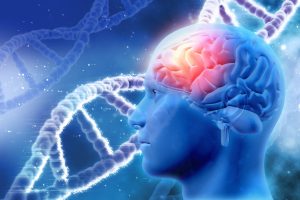
When considering advanced therapies for complex conditions like those requiring neuroregeneration or cognitive restoration, the environment in which care is delivered plays a crucial role. Pereira, Colombia, offers distinct advantages that enhance the patient journey, particularly for those seeking specialized pathways in regenerative medicine.
Modern Infrastructure and Patient Care Standards
Pereira, as a hub in Colombia’s thriving coffee axis region, is home to modern medical facilities equipped with advanced technology. This robust infrastructure supports high standards of patient care, from diagnostics to post-procedure support. Colombian medical professionals often receive comprehensive training, and many facilities adhere to international quality benchmarks, providing a reassuring backdrop for individuals exploring advanced treatment options.
Our experience at Regencord has shown that patients benefit immensely from a setting where medical innovation meets established healthcare quality. The emphasis on continuous improvement and adherence to national health guidelines set by the Colombian Ministry of Health provides a structured and reliable environment for care.
A Holistic and Patient-Centric Environment
Beyond the technical capabilities, Pereira offers a unique advantage in its holistic approach to patient well-being. The city itself, known for its pleasant climate and natural beauty, contributes to a calming and recovery-friendly atmosphere. This is not just about the medical procedure; it’s about the entire experience.
One of our Regencord synthesized insights highlights that “Many individuals find that a comprehensive, coordinated approach – from initial assessment to post-treatment support, including logistical aid within Pereira – significantly reduces anxiety and enhances the overall therapeutic experience, transforming a complex medical journey into a supportive pathway.” This means prioritizing not only the medical aspect but also the emotional and logistical support that is vital during a challenging health journey. The Regencord team is committed to facilitating this integrated experience, ensuring every patient feels supported and informed.
Another insight underscores that “Patients often struggle to discern legitimate, evidence-informed regenerative therapies from unproven claims, leading to significant emotional and financial strain.” Pereira’s regulated environment, combined with Regencord’s transparent educational approach, offers a clear advantage, allowing patients to focus on their health with confidence in the information they receive.
Navigating Your Options: The Regencord Clarity Compass
The journey toward exploring advanced neurological therapies can feel overwhelming, especially when confronting complex terms like neuroregeneration and neural stem cells. To simplify this process and empower you with knowledge, the team at Regencord has developed a structured approach: The Regencord Clarity Compass.
This branded resource is designed as a patient’s guide through the intricate landscape of advanced care pathways. It’s not merely a checklist, but a comprehensive framework that helps you systematically understand, evaluate, and navigate your options. The Clarity Compass ensures that every step, from initial inquiry to considering a potential pathway, is grounded in education, transparency, and personalized support.
The Compass includes:
- Step 1: Confidential Case Review: A thorough, non-obligatory assessment of your medical history and specific needs, conducted with sensitivity and respect for your privacy.
- Step 2: Educational Insight: Clear, accessible explanations of the scientific principles behind neuroregeneration and advanced therapies, drawing from sources like the NIH and PubMed, tailored to your understanding.
- Step 3: Candidacy Discussion: An honest evaluation of whether regenerative medicine pathways align with your condition and expectations, setting realistic goals without asserting unverified clinical superiority.
- Step 4: Personalized Pathway Planning: If a pathway is deemed appropriate, a detailed outline of the process, including logistical support within Pereira, Colombia.
- Step 5: Ongoing Support: Resources and connection points for post-care considerations and continued well-being.
The Regencord Clarity Compass serves as your roadmap, transforming a potentially daunting experience into a manageable, supported journey towards informed decision-making.
Our Regenerative Philosophy & Approach at Regencord
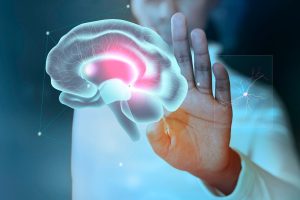
At Regencord, our philosophy is deeply rooted in patient empowerment through education and ethical transparency. We approach the field of regenerative medicine, particularly for complex neurological conditions requiring neuroregeneration, not with promises, but with a commitment to clarity, scientific grounding, and personalized care. We do not claim to offer a ‘cure’ or ‘guaranteed’ outcomes, as such assertions are not supported by the evolving science and are ethically questionable.
Instead, our approach is defined by:
- Evidence-Informed Discussion: All discussions about potential pathways are based on currently understood scientific principles and ongoing research from reputable sources like the NIH, and PubMed-indexed journals. We explain the science in understandable terms, allowing you to grasp the foundation of these therapies.
- Rigorous Patient Selection: Not every individual is a candidate for advanced regenerative pathways. We emphasize careful, individual assessment to determine suitability, focusing on what is ethically appropriate and potentially beneficial given the current understanding of the science.
- Holistic Support: Beyond the medical aspects, we recognize the importance of comprehensive support. This includes assisting with understanding the patient journey, coordinating logistics within Pereira, Colombia, and providing a compassionate environment.
- Ethical Framework: Our operations are guided by strict ethical considerations and align with regulatory guidelines established by the Colombian Ministry of Health and INVIMA for advanced therapies. Patient safety and well-being are always at the forefront.
- Realistic Expectations: We believe in fostering realistic expectations. While the potential for neuroregeneration and cognitive restoration is a focus of intense research, individual responses vary. Our role is to provide a balanced perspective, focusing on supporting the body’s natural capacities and improving overall quality of life where possible.
Our goal is to be a trusted resource, guiding you through the possibilities and practicalities of advanced regenerative medicine pathways, ensuring you make choices that are right for you, supported by comprehensive information and compassionate care.
Overcoming Common Hesitations: Why Seeking Clarity is a Strategic Advantage
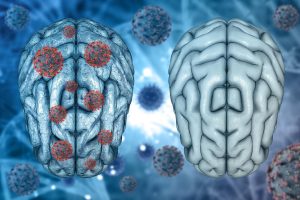
It’s natural to have reservations when exploring advanced medical interventions, especially for conditions as significant as traumatic brain injury or other neurological challenges. Many potential patients share similar concerns, and addressing these openly is a cornerstone of our patient advocacy at Regencord.
Is Advanced Therapy Ethical and Legitimate?
Barrier: “Is brain stem cell treatment experimental and unsafe, particularly in Colombia, or is it merely unregulated hope?”
Lever/Counter-Argument: It is crucial to distinguish between unproven, unregulated clinics and those operating within established ethical guidelines. In Colombia, advanced therapies are subject to the oversight of the Colombian Ministry of Health and INVIMA. This regulatory framework ensures that any pathways offered adhere to national health standards and patient safety protocols. Regencord emphasizes rigorous patient selection and focuses on approaches grounded in scientific understanding, often informed by ongoing research monitored by institutions like the NIH and published in PubMed-indexed journals. Our approach is to clarify the evidence and regulatory context, empowering you to understand the legitimate scope of these therapies.
Navigating Information Overload: Where to Begin?
Barrier: “The information available on neuroregeneration and stem cell treatments is overwhelming and contradictory; I don’t know who to trust or where to start.”
Lever/Counter-Argument: The information landscape can indeed be confusing. This is precisely where Regencord’s role as a patient advocate becomes invaluable. We pride ourselves on simplifying complex scientific information into understandable language, helping you sift through the noise. Our initial ‘confidential case review’ is designed to be your starting point, providing a clear, step-by-step process. We focus on education, answering your specific questions about neural stem cells, traumatic brain injury, and cognitive restoration, and guiding you towards verifiable sources and a pathway for informed decision-making.
Setting Realistic Expectations for Complex Conditions
Barrier: “Even if safe, is it truly effective? What are the realistic expectations, especially for complex conditions where conventional options have limited success?”
Lever/Counter-Argument: Our commitment is to honesty and realism. While research into neuroregeneration holds promise for conditions like traumatic brain injury, individual outcomes are highly variable. We do not offer guarantees or make unverified claims. Instead, we focus on a personalized assessment to determine if regenerative pathways align with your specific condition and potential. Our discussions will center on the body’s capacity for repair, the supportive environment we provide, and what can be reasonably expected in terms of quality of life and functional support, based on current scientific understanding. We aim to set expectations that are both hopeful and grounded in reality.
Addressing Logistical Concerns for Care in Colombia
Barrier: “Even if I find a legitimate option, seeking advanced treatment in Pereira, Colombia, sounds complicated and overwhelming. How would I manage the logistics?”
Lever/Counter-Argument: We understand that navigating medical care in a different city, even within Colombia, can seem daunting. This is where Regencord’s comprehensive patient support truly shines. We are dedicated to making your journey as smooth and stress-free as possible. Our team assists with coordinating every aspect, from your initial confidential case review to outlining your personalized pathway, and providing logistical guidance during your time in Pereira. Our goal is to transform the perception of a complex process into a manageable, supported pathway, allowing you to focus on your health and well-being.
Glossary of Key Terms
- Neuroregeneration: The process of repairing or replacing damaged nerve cells, tissues, or connections in the nervous system, potentially leading to improved function.
- Neural Stem Cells: Specialized cells found in the nervous system that can self-renew and differentiate into various types of brain cells, including neurons, astrocytes, and oligodendrocytes.
- Traumatic Brain Injury (TBI): An injury to the brain caused by an external force, often resulting in temporary or permanent impairment of brain function.
- Cognitive Restoration: The process of regaining or improving mental functions such as memory, attention, problem-solving, and language after neurological damage.
- INVIMA: Colombia’s National Institute for Food and Drug Surveillance, responsible for the regulation and oversight of health products, including advanced therapies.
- Multipotency: The ability of a stem cell to differentiate into multiple specialized cell types, but typically from a limited range of lineages.
- Trophic Factors: Substances that support the survival, growth, and differentiation of cells, particularly neurons.
Frequently Asked Questions (FAQ)
- What is brain stem cell treatment?
- Brain stem cell treatment involves the use of specialized cells that have the potential to develop into various brain cell types, aiming to support the body’s natural processes of repair and regeneration within the nervous system. This approach is explored for conditions impacting neuroregeneration and cognitive restoration.
- Is stem cell therapy for neurological conditions regulated in Colombia?
- Yes, advanced therapies in Colombia, including those involving stem cells, are subject to the regulatory oversight of institutions like the Colombian Ministry of Health and INVIMA. This ensures that any approved pathways adhere to national health standards.
- What conditions might benefit from neuroregeneration approaches?
- Neuroregeneration strategies, including certain stem cell applications, are being investigated for their potential to support recovery in conditions such as traumatic brain injury, stroke, and certain neurodegenerative diseases. The goal is to enhance the body’s repair mechanisms and potentially aid in cognitive restoration.
- How does Regencord in Pereira, Colombia, support patients seeking these therapies?
- The team at Regencord offers a comprehensive, patient-centric approach. This includes thorough case reviews, educational resources, guidance through the scientific basis of regenerative pathways, and logistical support throughout the patient journey in Pereira, emphasizing clarity and informed decision-making without asserting unverified clinical superiority.
- What should I consider before pursuing advanced neurological therapies?
- It is crucial to prioritize thorough education, seek multiple perspectives, understand the scientific evidence (or lack thereof) for specific interventions, and evaluate the ethical and regulatory standing of any proposed treatment. A confidential case review can help clarify personal suitability and available pathways.
Discover if you are a candidate for the regenerative medicine pathways available through the team at Regencord in Pereira, Colombia.
Contact us for a confidential case review.
References:
- World Health Organization (WHO). (n.d.). Neurological disorders. Retrieved from www.who.int
- U.S. National Institutes of Health (NIH). (n.d.). Stem Cell Information. Retrieved from www.nih.gov
- Colombian Ministry of Health and Social Protection (Ministerio de Salud y Protección Social). (n.d.). Health Information. Retrieved from www.minsalud.gov.co
- INVIMA (National Institute for Food and Drug Surveillance of Colombia). (n.d.). Regulatory Information. Retrieved from www.invima.gov.co
- ClinicalTrials.gov. (n.d.). Search for “stem cell neurological conditions”. Retrieved from www.clinicaltrials.gov
This article is for informational and educational purposes only and does not constitute medical advice. Treatment decisions should always be made in consultation with a qualified medical professional. Veris Salus LLC serves solely as a marketing and patient-coordination facilitator for Regencord in Pereira, Colombia, and does not provide medical services or advice. Outcomes are not guaranteed, and individual results may vary. All information is presented in compliance with FTC guidelines.
